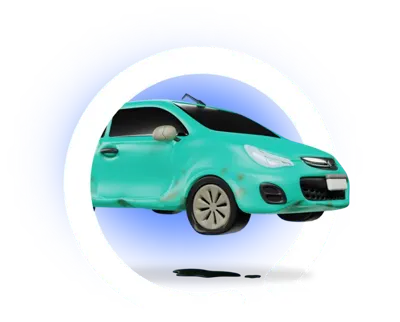
At EMR Vehicle Recycling, we appreciate how irritating this can be – which is exactly why we make sure to do as much of the paperwork as possible, when we help you scrap your car. It saves you a lot of time and hassle, as well as having to remember key details that can potentially trip you up. As one that’s currently catching out a lot of drivers, this little-known licence rule is a prime example!
When you’re renewing your licence, you may not be entitled to keep driving
Renewing your licence seems like quite a simple task on the face of it – and there probably doesn’t seem like any reason why you shouldn’t be able to keep driving in the meantime. After all, you’ve still passed your test, and just renewing your licence doesn’t invalidate the results, right? Well, for most people, it generally is that simple. The catch is: it’s not for everyone.
There’s a specific part of the law (Section 88 of the Road Traffic Act 1988) that covers whether you’re legally able to continue driving while you wait for your new licence. The idea behind Section 88 is to let drivers stay on the road while their application is being processed, as long as certain conditions are met. If you’re one of them, one of the key conditions is that you mustn’t have any medical conditions that could affect your ability to drive safely.
Annoyingly, that stipulation can easily be missed, especially as there’s often no formal notice from the DVLA saying your licence is invalid. In other words, if you do have a disqualifying medical condition, it’s quite possible to fall outside the Section 88 criteria without realising. That means you technically shouldn’t be driving – even if you’ve sent off everything on time.
This is especially important for older drivers or anyone who has a medical condition that needs regular check-ins or assessments. According to DVLA figures, over 1.2 million licences are revoked or refused every year – and medical conditions are a big part of that picture.
One more thing to keep in mind is how much this system still relies on post. If you miss a letter or it arrives late, you might not realise your licence has been revoked or that you’re being asked for more information. That can open up the possibility of getting things wrong, which in turn can open up the possibility of otherwise avoidable fines.
How can you end up getting fined?
As we’ve covered, it’s not always clear where the line is, especially when it comes to medical declarations. But the basic rule is: if you’ve got a medical condition that could affect your driving, it usually needs to be reported. They’re not minor conditions either, so chances are if you’ve got one, you’ll generally already be aware of it.
Some examples include:
- Diabetes (particularly if it’s insulin-treated)
- Sleep apnoea or other sleep-related condition
- Heart problems like arrhythmia or angina
- Epilepsy or any history of seizures
- Neurological conditions, including MS or Parkinson’s
- Eyesight issues that aren’t fully corrected with glasses or lenses
If any of these apply, or if there’s been a change in your condition, it’s worth checking the DVLA guidance or speaking to your GP. The aim isn’t to trip anyone up – it’s to make sure everyone on the road is safe. But if something important goes unreported, it could lead to fines, points, or restrictions on your licence.
How can you avoid getting caught out?
Thankfully, just a few quick checks can go a long way in making sure everything’s in order.
Start with your licence itself. Check the expiry date, especially if you’re over 70 or you have a medical renewal coming up. Next, if you’ve sent off a renewal and you’re wondering whether you can keep driving, it’s worth checking that you meet all the Section 88 conditions. It’s not automatic – but if you tick the right boxes, you’re usually covered.
It’s also a good idea to tell the DVLA about any medical conditions proactively, rather than waiting to be asked. That way, everything’s on record and you’re not left second-guessing anything. It helps to keep a copy of your renewal application or confirmation email. If you ever get stopped or asked about it, it makes the entire process a lot easier when you have that to hand.
It all goes to show that when it comes to paperwork, it pays to be organised. We appreciate how tricky that can be to do though, especially if you’re not even necessarily aware of the potentially crucial regulations that apply. That’s why when you scrap your car with us here at EMR Vehicle Recycling, we take care of all that paperwork for you – making the entire process simple and stress free.
That means, for example, you don’t have to worry about accidentally breaching the terms of the Scrap Metal Dealers Act, and that we’ll never hang around in sending you that crucial Certificate of Destruction, to serve as legal proof that you’ve safely and responsibly recycled your car.
It’s never been easier to get started, too – all you need to do is enter your car reg and postcode into the fields on our homepage, and you’ll have an instant online quote before you can say scrap my car. Curious to see how much your car could be worth?

